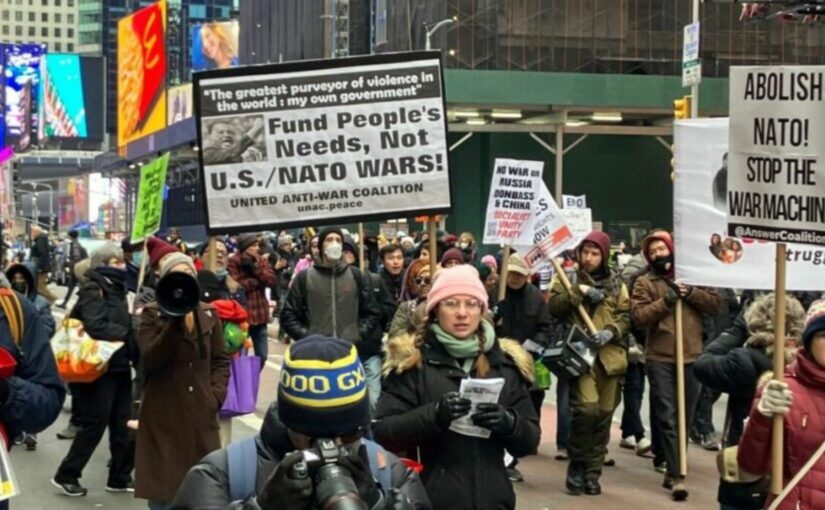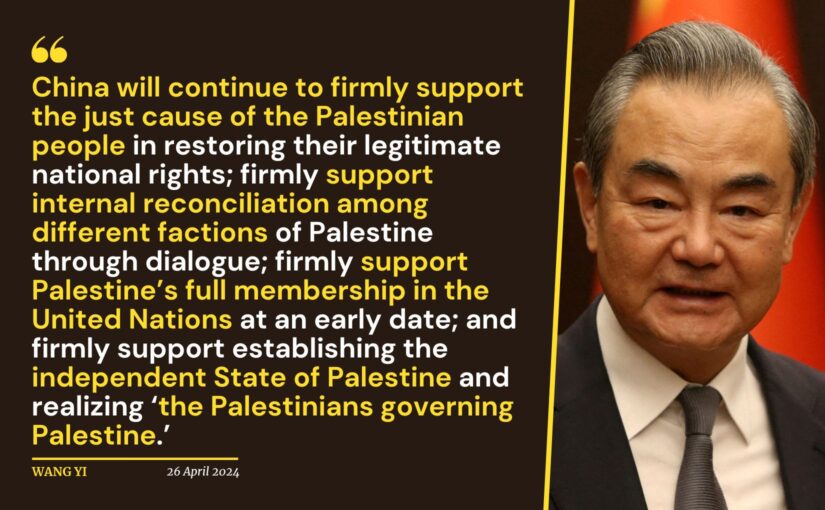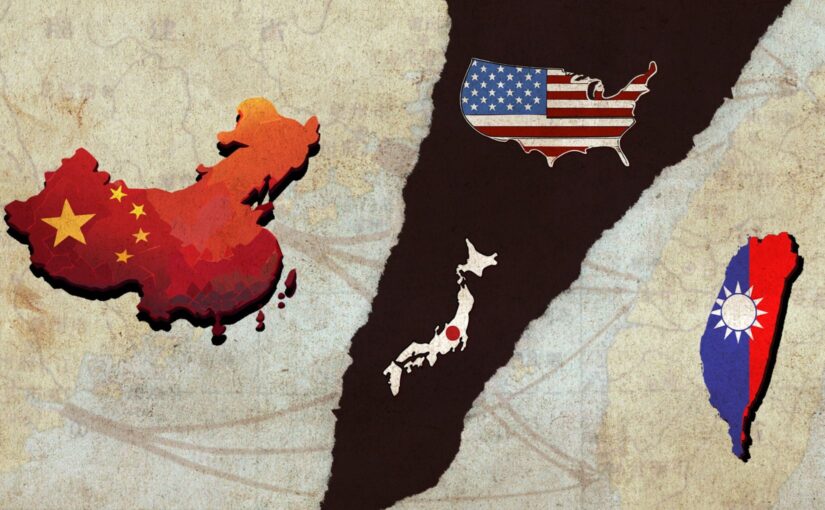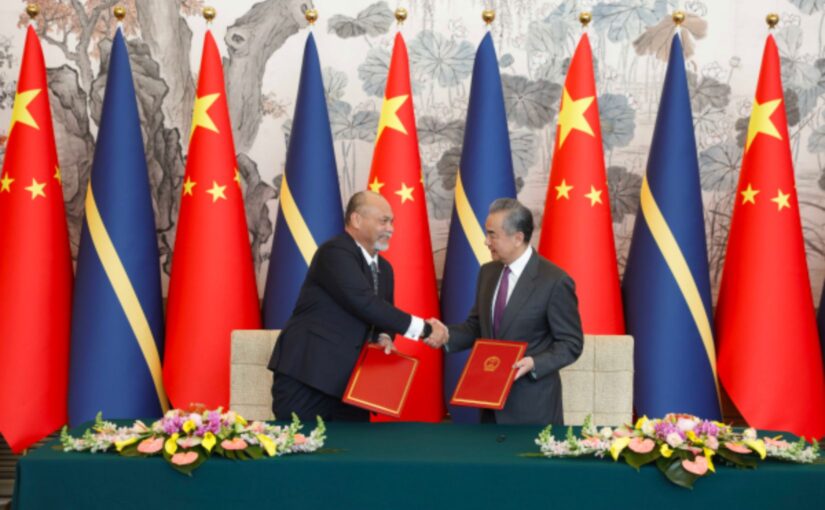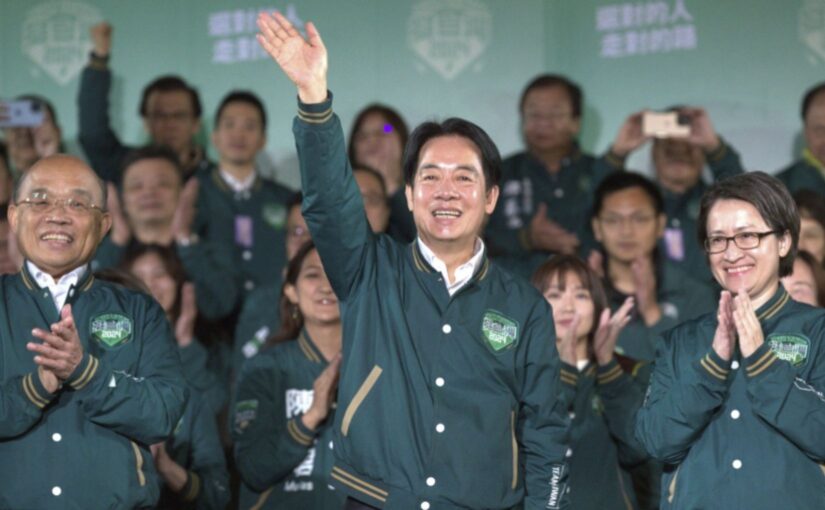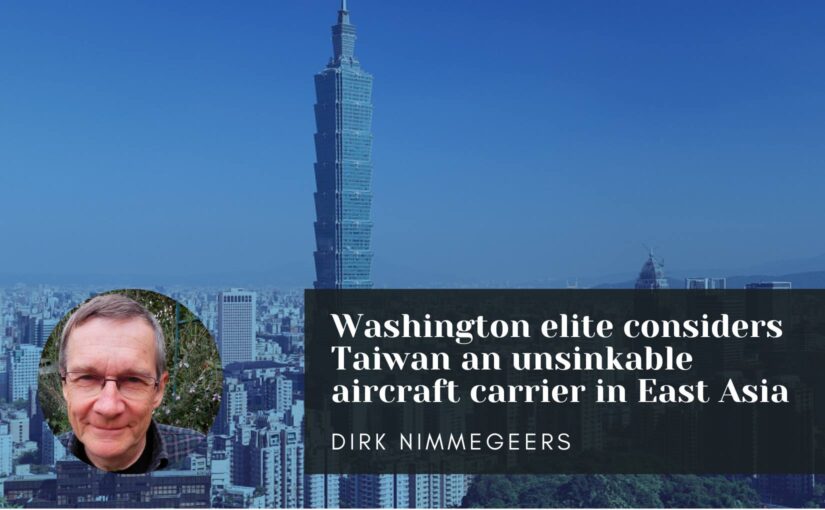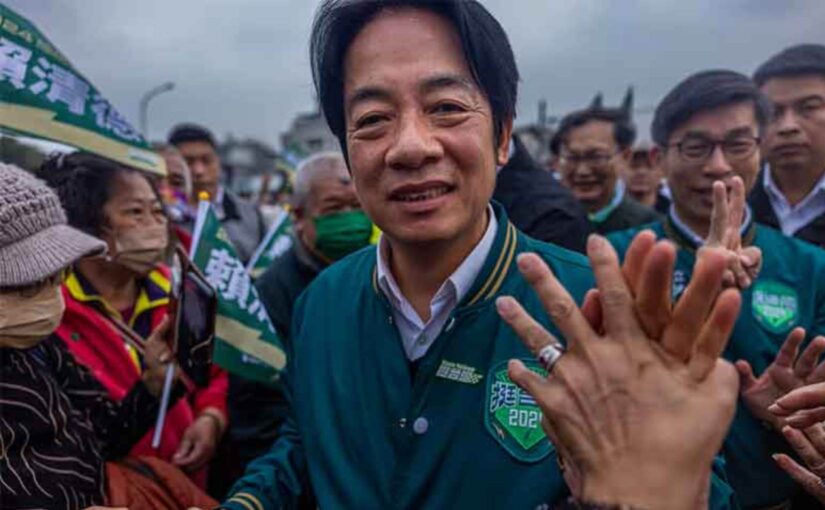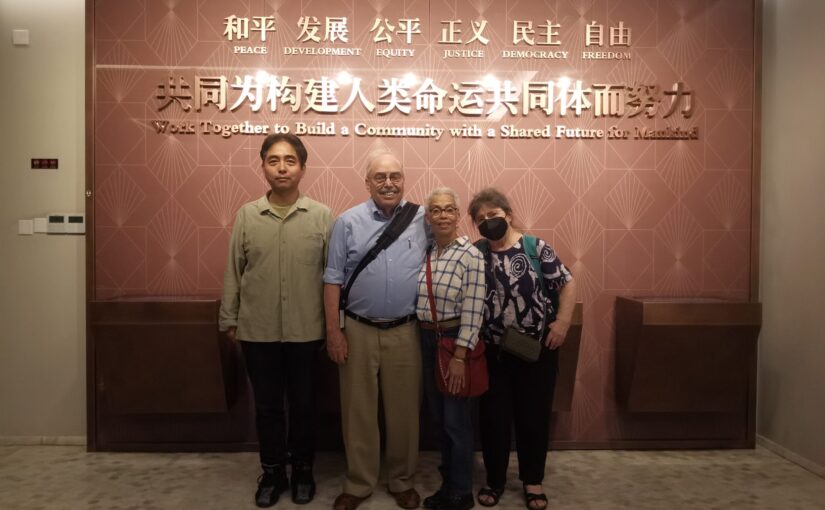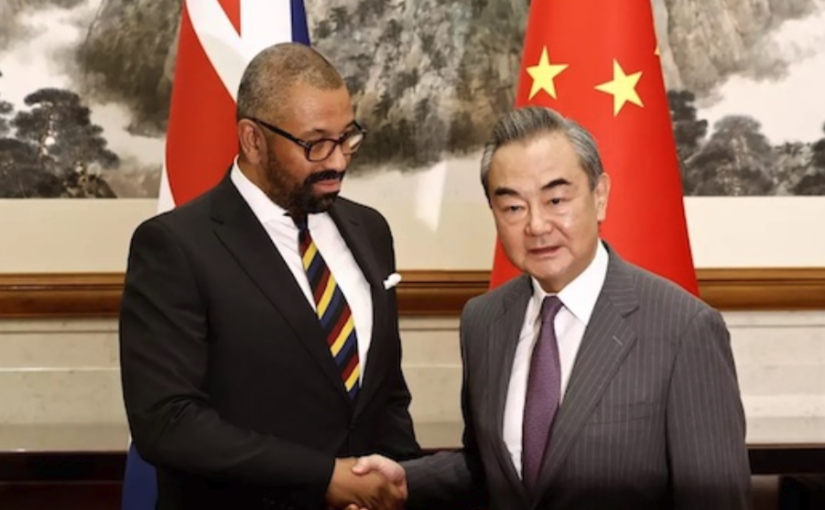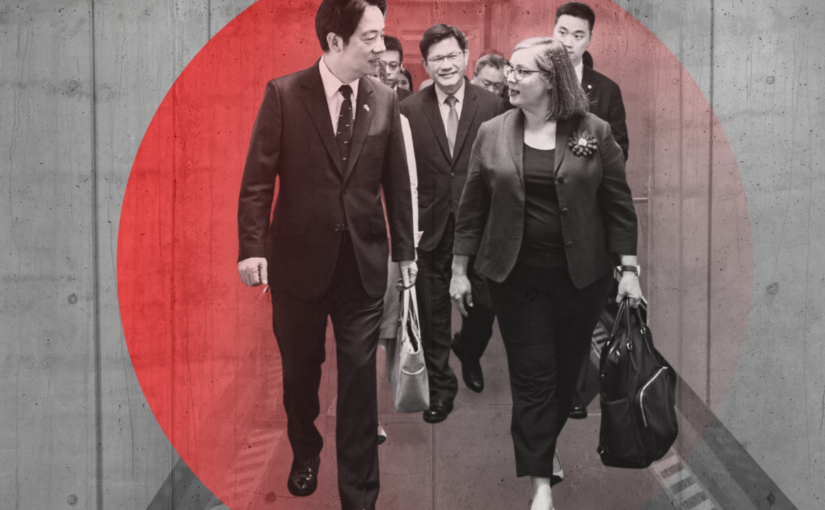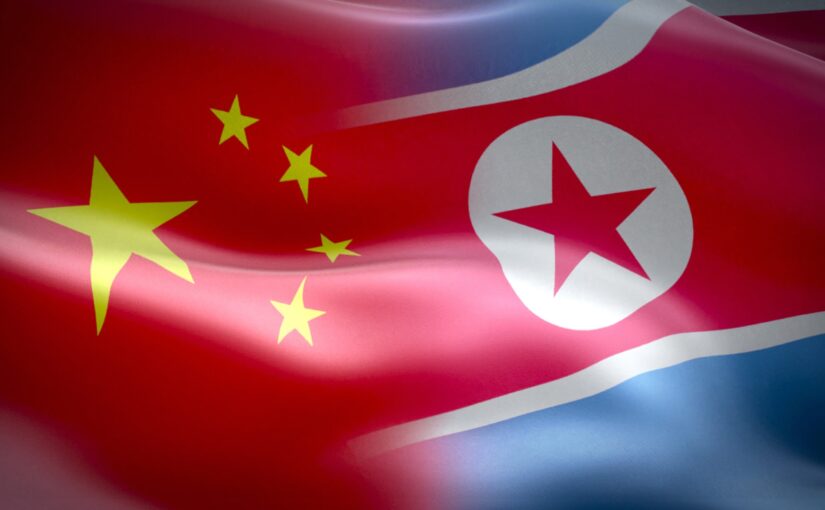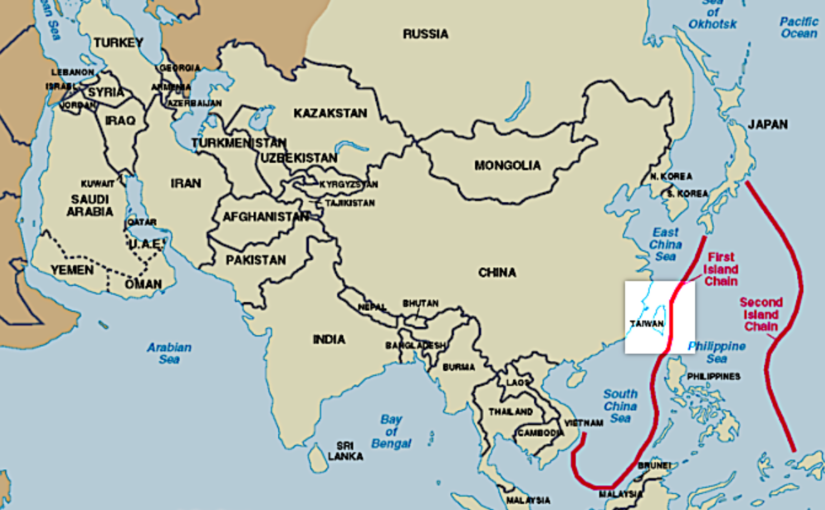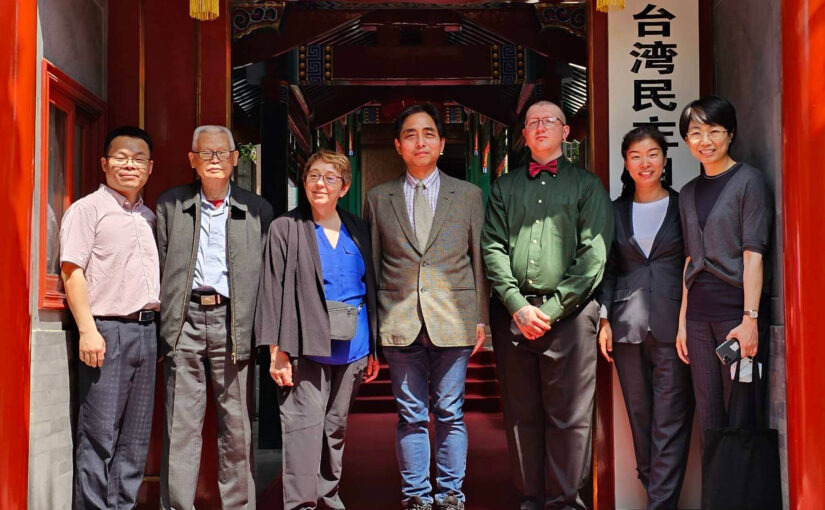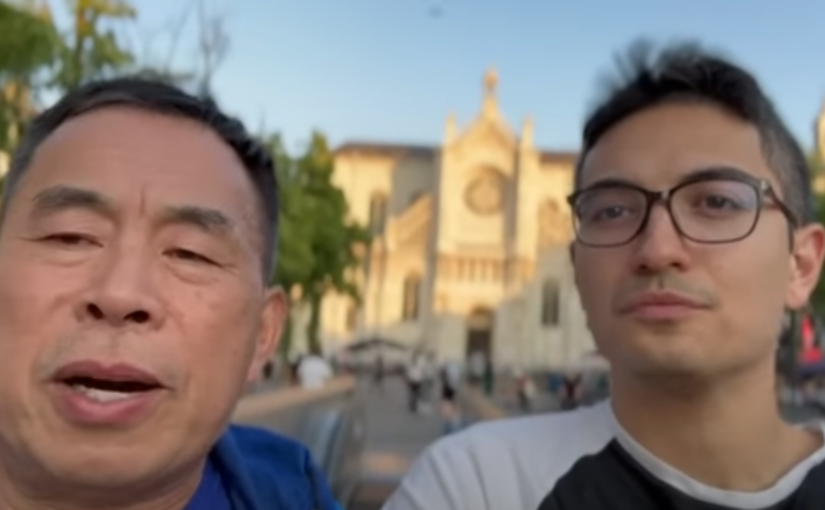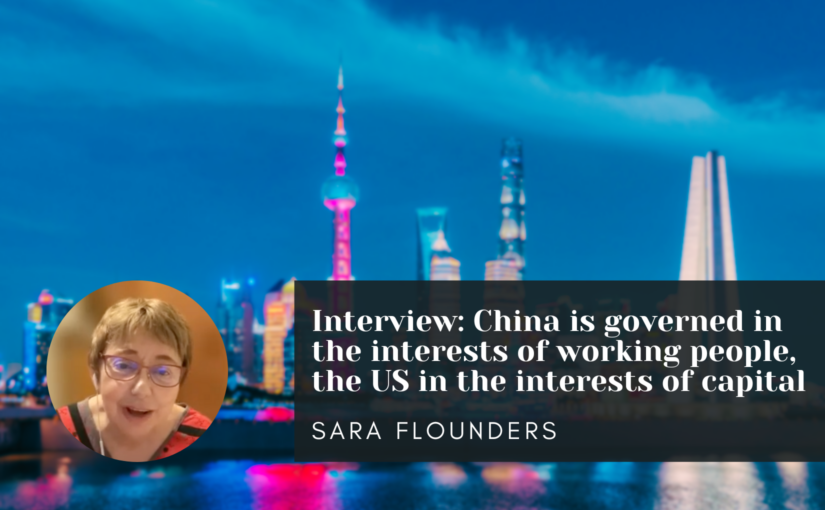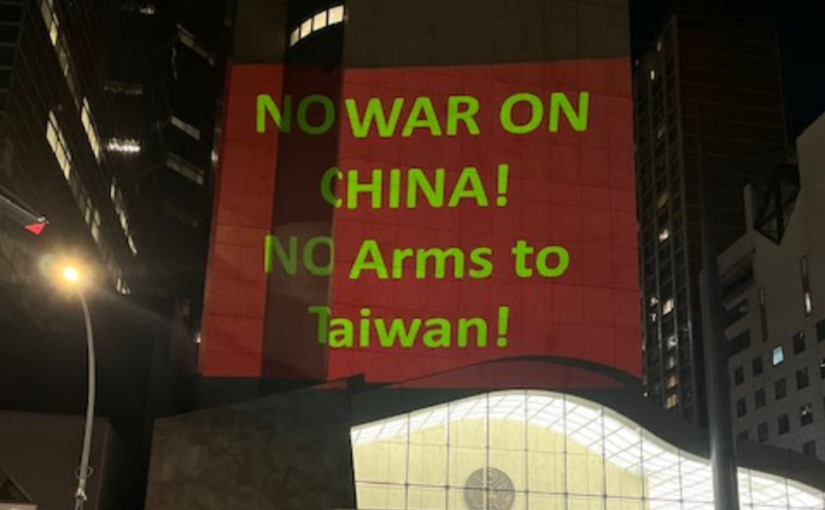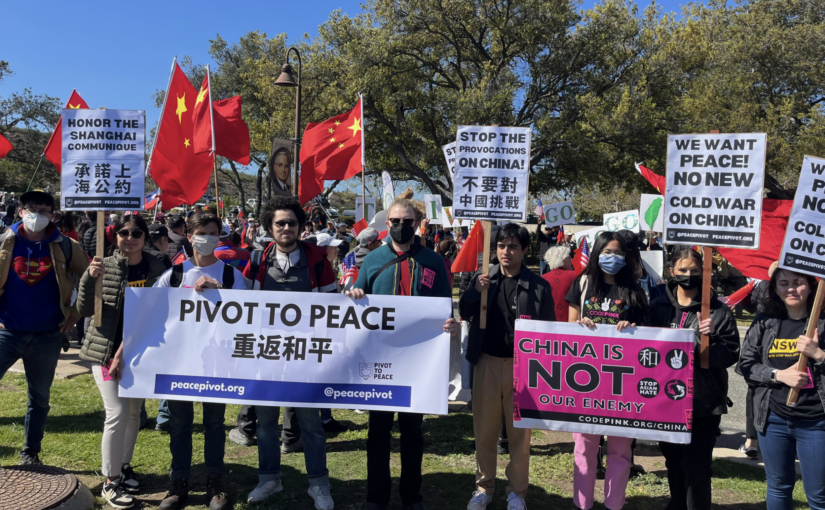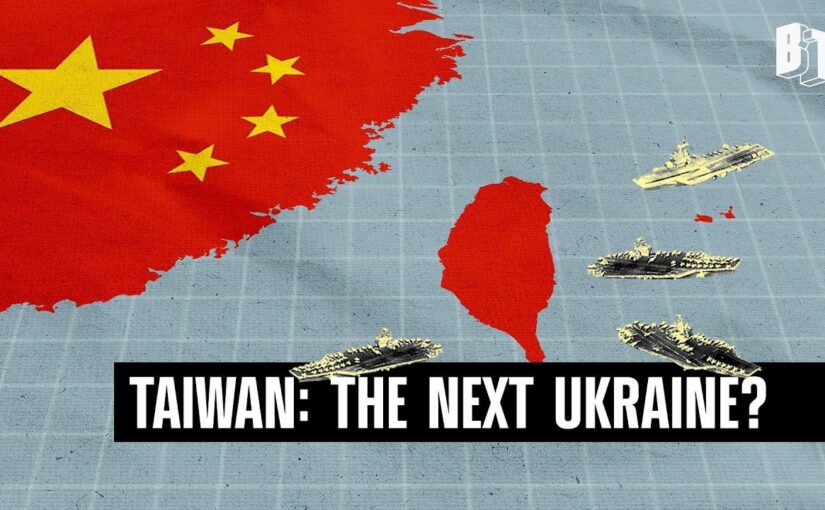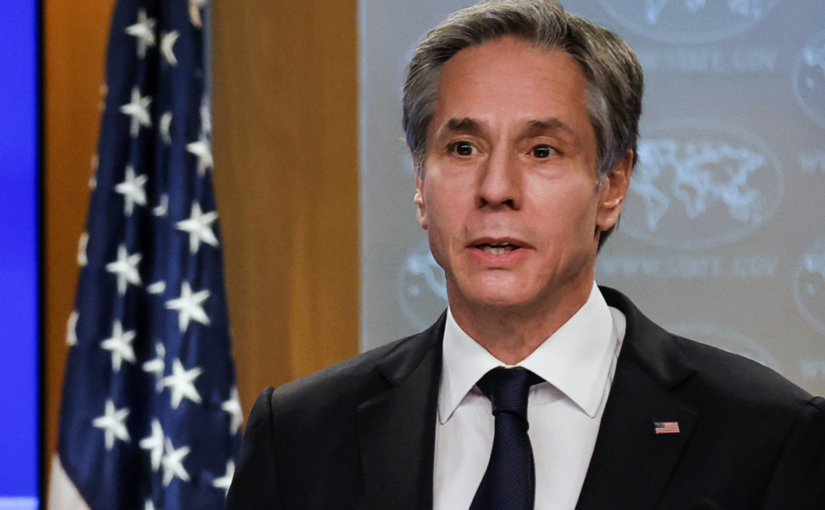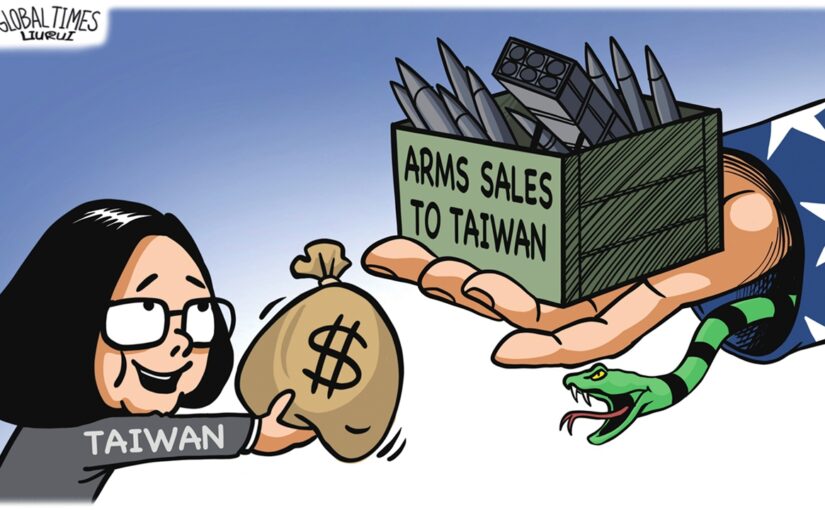In the following article, which originally appeared in the Morning Star, Kenny Coyle analyses the results of the elections held in Taiwan on January 13.
He notes that the return to office of the Democratic Progressive Party (DPP), which leans heavily towards separatism from China, has been warmly welcomed in Washington, London and Brussels, adding that it will “provide further combustible material to already tense cross-Taiwan Strait relations, with Washington eager to exploit Taiwan as a forward base for potential military conflict with the People’s Republic of China (PRC).”
A closer look at the polling results, Kenny continues, reveals a more complex picture than that presented by western media headlines. The DPP’s candidate Lai Ching-te secured the presidency with 40% of the vote, against 33.49% for the Kuomintang (KMT) and 26.46% for the new Taiwan People’s Party (TPP).
“Lai’s 40 per cent figure represents a massive drop from the tallies achieved by his predecessor Tsai Ing-wen, who won 57 per cent of the vote in 2020 and 56 per cent in the 2016 presidential contests. The DPP also suffered serious reversals in the legislative elections, where it polled only 36 per cent in party vote share and came second to the KMT in seats, losing its majority in the legislature.”
Noting that hopes for a single KMT-TPP presidential candidate had collapsed – following initial agreement – last November, Kenny writes that: “If the two opposition parties had set aside their differences, Western media headlines would have read very differently on Sunday morning.”
Presidential elections in Taiwan have returned the ruling Democratic Progressive Party’s (DPP) candidate Lai Ching-te with 40 per cent of the vote, beating his main rival Hou You-yi of the Chinese Nationalist Party (Kuomintang or KMT) on 33.49 per cent, and Ko Wen-je of the Taiwan People’s Party (TPP) supported by 26.46 per cent of voters.
Lai, who is the incumbent vice-president, led the DPP to its third consecutive term in office, the first three-time tenure since direct presidential elections began in Taiwan in 1996.
In a victory speech, president-elect Lai said Taiwan had shown the world that “between democracy and authoritarianism, we will stand on the side of democracy.”
The result has been warmly welcomed in Washington, London and Brussels which has strongly backed the separatist DPP. It will provide further combustible material to already tense cross-Taiwan Strait relations, with Washington eager to exploit Taiwan as a forward base for potential military conflict with the People’s Republic of China (PRC).
The PRC argues that Taiwan and the territories it occupies are part of China, as does Taipei’s own Republic of China-derived constitution, and that as the internationally recognised state power of China, any external interference or unilateral declaration of independence is a breach of Chinese sovereignty.
The immediate response from the Taiwan Affairs Office of the State Council in Beijing was terse: “Whatever changes take place in Taiwan, the basic fact that there is only one China in the world and Taiwan is part of China will not change; the Chinese government’s position of upholding the one-China principle and opposing ‘Taiwan independence’ separatism, ‘two Chinas’ and ‘one China, one Taiwan’ will not change.”
Western media coverage of the election has naturally focused on the relations across the Taiwan Strait and ignored the social and economic issues that motivate voters anywhere. On a trip I made to Taiwan last year, it was striking to see the disconnect between the calmness of everyday life and the Western depictions of an island under permanent siege.
The Establishment media in Britain and the US has predictably greeted Lai’s win as a victory for democracy and an act of plucky defiance to Beijing by Taiwanese voters:
“In a Setback for Beijing, Taiwan Elects Lai Ching-te as President” — New York Times; “Taiwan elects William Lai president in historic election, angering China” — BBC.com; “Taiwan voters dismiss China warnings and hand ruling party a historic third consecutive presidential win” — CNN.com; “Taiwan’s ruling party secures presidency as voters defy China — Financial Times.
However, a closer look at the polling results reveals a more complex picture.
Lai’s 40 per cent figure represents a massive drop from the tallies achieved by his predecessor Tsai Ing-wen, who won 57 per cent of the vote in 2020 and 56 per cent in the 2016 presidential contests. The DPP also suffered serious reversals in the legislative elections, where it polled only 36 per cent in party vote share and came second to the KMT in seats, losing its majority in the legislature.
However, the KMT did not benefit from the DPP’s losses in the presidential poll and support seems stuck at around a third of Taiwanese voters — it took 31 per cent in 2020 and 38 per cent in 2016. The KMT last held the presidency when Ma Ying-jeou won re-election in 2012 with 51.6 per cent in a straight fight with the DPP.
To put it in raw figures, Lai received 5,586,019 votes, the KMT 4,671,021 and the TPP 3,690,466 votes, a combined opposition figure of well over eight million. This is not quite the ringing endorsement for an anti-Beijing stance that Western media would have us believe but rather reflects the vagaries of a first-past-the-post rather than first-round, second-round systems favoured by other presidential systems, such as France.
In the legislative elections, though, seats are allocated in three categories; 73 through district constituencies, 34 by party vote share and six are allocated to the aboriginal Taiwanese communities.
The KMT and DPP tied for seats in both the district (36 each) and party list (13 each) but the KMT took three to the DPP’s two in the aboriginal sector. The TPP won just eight seats in the party vote segment, despite winning 22 per cent of the votes overall. Minor parties took the remaining two seats in the district and aboriginal sectors.
The most significant factor has been the emergence of a potentially powerful third force in the shape of the TPP. Since the 1990s post-dictatorship Taiwanese politics have generally been characterised by the fluctuating fortunes of the Blue (rhetorically one-China) camp, dominated by the KMT, and the Greens (essentially separatist) led by the DPP.
The TPP has painted itself as the turquoise party, neither fully blue nor fully green. It seeks to build a base among the many Taiwanese who favour cross-strait detente but are alienated from the KMT, with its historical baggage, but also from the DPP, due in part to its self-harming policy of confrontation with Beijing but also its economic performance.
Presidential candidate and TPP founder Ko was seen as an ally of President Tsai but gradually moved away from the DPP during his time as mayor of Taipei. He was first elected in 2014 as an independent with DPP support but his re-election in 2018 was opposed by the DPP. Ko then founded the TPP in 2019.
While the TPP does not subscribe to the “1992 Consensus” arrived at by the then KMT-led island and the People’s Republic of China, the TPP does promote widening “cultural, economic and political” exchanges. It also criticises the DPP for frequently manipulating “cross-strait issues excessively for election purposes” thereby causing “unnecessary conflicts with China.”
Hopes that a single joint KMT-TPP presidential candidate foundered after acrimonious negotiations last November failed to agree on a common anti-DPP platform. However, in a number of district contests the KMT and TPP did agree to co-operate. If the two opposition parties had set aside their differences, Western media headlines would have read very differently on Sunday morning.
Despite constant claims of Beijing’s interference in Taiwan’s elections, the truth is that the PRC’s influence over Taiwanese politics is considerably less than that of the US.
While the KMT, founded by Sun Yat-sen in 1912, is an openly Chinese nationalist party, acknowledging the fundamental aim of eventually reunifying the island of Taiwan with the rest of China, it does not accept the absorption of the island with the People’s Republic of China under the leadership of its twice-ally, twice-enemy the Communist Party of China (CPC).
Indeed, had China possessed any real influence over the KMT, or the TPP for that matter, there would have been a single candidate, not a split opposition.
However, this embedded propaganda point about Chinese electoral manipulation could become explosive if, as is entirely plausible, the DPP were to lose a future electoral contest, with domestic and external forces refusing to recognise the result. This is a tried and trusted State Department strategy used from Latin America to Eastern Europe. The effects in Taiwan would be catastrophic.
What of Washington’s influence on the island?
The DPP’s Japanese-born vice-president-elect elect Hsiao Bi-khim is a former US citizen, through her mother. She was educated at Oberlin College and Columbia University, only renouncing her US citizenship in 2002 when she began her political career with the DPP in Taiwan. She has held positions in key bodies such as the island’s National Security Council and as representative, Taipei Economic and Cultural Representative Office in the US, in 2020.
Hsiao even described herself as Taiwan’s “ambassador” to the US on her X (then Twitter) account, although formally the US does not recognise the island as a state, far less one with ambassadorial credentials.
Nonetheless, Hsiao attended the presidential inauguration of Joe Biden in 2020, the first time that a Taiwanese representative had been officially invited since the US ended diplomatic relations with the “Republic of China” (Taiwan) in 1979 and recognised the People’s Republic of China instead.
This was a calculated move signalling the Biden administration’s determination to further weaken the US’s stated One China policy. Nonetheless, we are incessantly told that it is Beijing that seeks to upset the status quo.
It’s certain that Hsiao will become the main Anglophone voice in the Lai administration, pushing for deepening Taipei’s military and security ties with Washington, what is unclear is to what extent the DPP’s loss of control over the legislature will dilute the separatists’ agenda.
